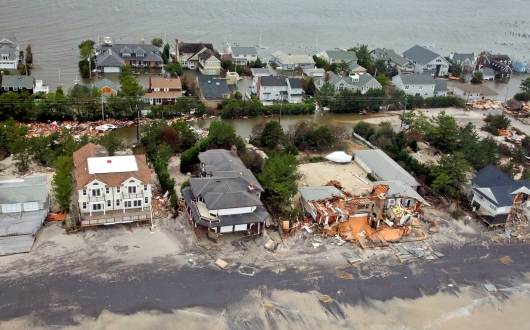 |
4 Lessons in Meeting Consumer Needs and Wants
A number of companies in the retail industry are ahead of the curve on adapting to climate change. This may be because retailers are very close to the end point of the consumption process. They see and learn firsthand from customers what they want and how they use the products they buy. For retailers who have less experience in this area, here are five lessons learned from the leaders about the ways climate is changing consumer needs and how to respond to them.
1) Seasonal merchandise is becoming less seasonal. These days, customers in the global north are likely to need snow shovels in April or running shorts on Thanksgiving. Retailers need to reconsider their ordering patterns and inventory management practices. This is a global challenge felt throughout the developed world This year, even Alaska ran out of snow shovels!
2) Increased frequency of weather emergencies means that people will need to stock up on basic supplies more often. The recent spate of 79 tornadoes in two days in the US Midwest is a good example. People need batteries, bottled water, generators and other survival equipment more often than in the past.
3) Consumer purchasing power may shrink, especially in areas that are hard hit by weather emergencies. People will favor products and companies that sell durable merchandise. They may buy less often, and when they do they will expect quality. Patagonia, a retail leader in responding to climate change, has capitalized on this with a campaign called The Common Threads Partnership. Patagonia pledges to make “useful gear that lasts” and the consumer pledges not to buy what s/he doesn’t need.
4) Consumer awareness of climate change and its causes has spurred demand for sustainable products. A Harris Interactive survey in May 2012 found that 69 percent of American adults purchase green products or services and nearly one third believe such products are the norm and a required expectation. This offers an opportunity for retailers to meet an emerging need. Luxury brand Gucci took note and launched its “Sustainable Soles” line of footwear made with biodegradable plastic. Gucci also offers biodegradable liquid wood sunglasses, which combine wood fibers from sustainably managed forests, lignin from paper manufacturing and natural wax.
Responding to consumers is not the only challenge that climate change presents to retailing. The PwC 17th Annual Global CEO Survey (Feb. 2014) found that more than half of the retail CEOs surveyed (51%) believe that “resource scarcity and climate change” will transform their businesses over the next five years. This compares to 46% of CEOs in all business sectors. A particular concern of retail CEOs is that supply chain disruptions could threaten growth. A whopping 88% said they were either “aspiring to change” or already had a “program underway” to make changes in their supply chains. This will be the focus of a future blog post.
About Gevril Group
 Gevril Group, watchmaker and wholesale watch distributor, is the exclusive U.S. agent for exquisitely designed and crafted European luxury and fashion watch brands, distributing and servicing some of the best affordable luxury and Swiss watches and trendy fashion watches. Gevril Group also operates a full-service watch repair, staffed by master Swiss watchmakers. Contact Gevril Group by email or by calling 845-425-9882.
Gevril Group, watchmaker and wholesale watch distributor, is the exclusive U.S. agent for exquisitely designed and crafted European luxury and fashion watch brands, distributing and servicing some of the best affordable luxury and Swiss watches and trendy fashion watches. Gevril Group also operates a full-service watch repair, staffed by master Swiss watchmakers. Contact Gevril Group by email or by calling 845-425-9882.
Join the conversation! Follow Gevril Group on Facebook, Twitter and LinkedIn. Please subscribe to the Gevril Group newsletter and blog.

